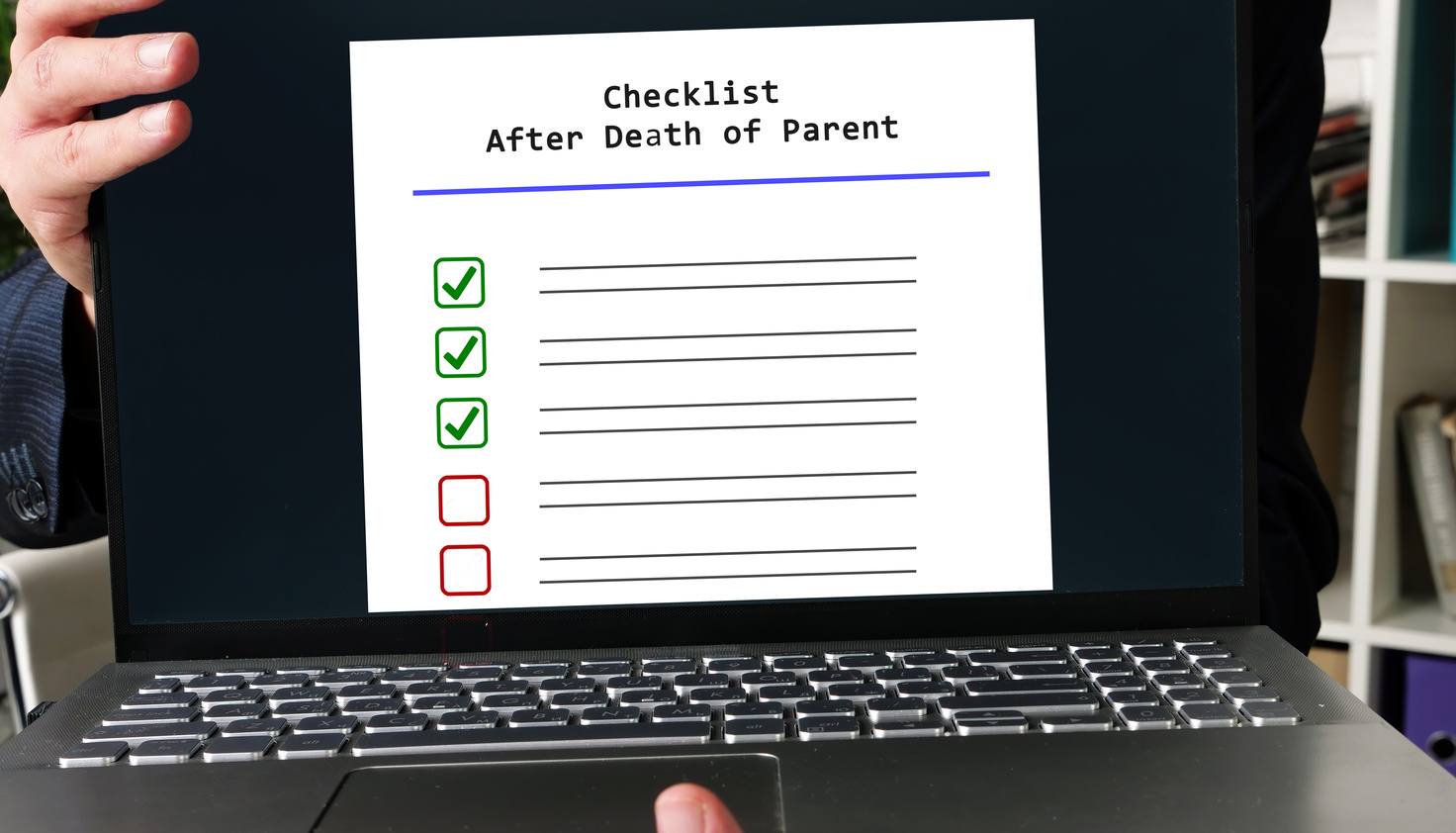Selling your house during a divorce isn’t just a transaction.
It’s a life-altering event.
You’re not only dealing with property.
You’re also facing a whirlwind of emotions and major decisions.
Decisions that will profoundly impact your future, your family’s well-being, and your finances.
This can feel overwhelming.
Which is why I want to help.
I have close to two decades of experience in the real estate industry.
And I’ve shared clear, practical advice and strategies with many sellers just like you to help them understand the process of selling property before a divorce settlement.
The goal?
For you to be able to make informed decisions that lead to a successful sale so you can transition to the next chapter of your life.
Here’s everything you need to know about selling a house during a divorce.
What to know before selling a house during a divorce
There are a few things every divorcing couple needs to understand before listing a home for sale.
Because being armed with the right information will help you and your spouse with important decisions.
And it can help secure the best outcome for your sale.
Here’s what you need to know before selling your house when getting divorced.
Community property vs. equitable distribution
Understanding whether your state follows community property laws or equitable distribution is crucial.
Why?
Because it impacts how your marital property will be divided.
And therefore the proceeds you and your spouse will each receive from the home sale.
Most U.S. states (41) are equitable distribution states.
Here, assets are divided fairly but not necessarily equally.
For example…
The split could be:
- 70/30
- 60/40
- 50/50.
The court considers many factors when deciding what’s “fair,” including:
- Length of marriage
- Earning power of each spouse
- Contributions each spouse made
- Whether the house was purchased by one individual or both.
Nine states are community property states.
Generally, assets acquired during marriage in a community property state are split 50/50 (unless a prenup states otherwise).
The community property states are:
- Arizona
- California*
- Idaho
- Louisiana
- Nevada*
- New Mexico
- Texas
- Washington
- Wisconsin.*
*Domestic partnerships in California, Nevada, and Wisconsin also follow these rules.
Knowing your state’s approach to dividing assets is essential before selling your home in a divorce because it can:
- Help you and your spouse’s financial planning as you move forward
- Guide your strategy when negotiating a divorce settlement
The court can order the sale of a home
Can’t agree with your spouse on selling the house?
The court might intervene.
This is called a forced sale or partition sale.
It usually happens when divorcing couples have a property dispute or can’t agree on how to sell.
The court will also decide how to divide the proceeds in these instances.
This can be a major hassle and prolong the divorce process.
That’s why being aware of the possibility of a court-ordered sale is vital before selling in a divorce.
It can incentivize both parties to negotiate and reach an agreement.
This usually leads to a faster, more cost-effective, less contentious resolution.
Agent referrals from an attorney are usually biased
Some sellers get a referral for a real estate agent from their divorce attorney.
But be careful…
This is usually a “scratch my back, and I’ll scratch yours” arrangement.
Meaning that the agent and attorney refer clients to each other.
Why does this matter?
Because a listing agent recommended by a divorce attorney might not be the best choice.
Here’s why…
The realtor might prioritize maintaining their relationship with the legal professional over your best interests.
Especially if they’re trying to secure future referral business.
You want to avoid these types of real estate agents at all costs.
Should a prospective real estate agent have experience in divorce situations?
Yes.
But other qualifications are equally important.
(We’ll elaborate on this in a bit…)
Options for selling a home amidst a divorce
Couples facing divorce have several options for handling the sale of their property.
You can mutually decide with your spouse on the best solution.
Or a judge may intervene if you can’t reach an agreement.
Here are the three main options for selling a house during a divorce.
One spouse buys out the other
One approach for selling in a divorce is for one spouse to buy out the other’s share of the property.
This might be ideal if children are involved because you avoid having to uproot them from their home.
It can also make sense if one partner prefers to keep the house.
Here’s how a marital buyout works…
A buyout price is typically negotiated after:
- Assessing the home’s fair market value
- Factoring in any mortgage balances and/or home equity lines of credit
- Determining the equity interest of the other spouse.
The spouse keeping the home in the divorce settlement has to then fund the buyout.
This is typically done by:
- Giving the other spouse a lump sum: This means that they must have enough saved cash or liquid assets that can be sold.
- A cash out refinance or taking out a second mortgage: This means that they would need to qualify for the new loan based on a single income.
In the case of a refinance or taking out a second mortgage, the partner initiating the buyout needs to be able to afford the new monthly payment, real estate taxes, and any upkeep on their own.
Once the new loan is signed, the selling spouse will receive their proceeds, sign over their ownership rights, and officially move out.
But what if this financial situation isn’t feasible?
That leads to the next option…
The house is sold after one partner keeps it for a specified time
Divorcing couples can remain co-owners for a set period before they sell the house.
This might be a good option for parents who aren’t able to afford a buyout.
Here’s how it works…
Both spouses continue owning the home.
But one partner lives there and maintains the property.
The spouse who occupies the home usually pays the entire monthly mortgage and taxes.
This type of co-ownership typically lasts until a certain milestone, like the couple’s youngest child turning 18.
The key is ensuring that the spouse living in the home can financially manage this commitment.
Because there’s a catch…
Both parties remain financially tied to one another until the house is sold.
So both spouses’ credit scores are impacted by any late mortgage payments.
Or if there’s a foreclosure.
Immediately sell the house and divide the equity between spouses
Most couples decide to sell the home outright and split the equity during a divorce.
That’s because this solution is typically the most simple and straightforward.
Especially when neither spouse can afford the home on their own.
But this approach also has another major benefit…
It allows both spouses to access the funds necessary for a fresh start.
And while finances are certainly important in a divorce…
Being able to move on to the next chapter of life can be priceless.
Is it better to sell a house before or after a divorce?
It’s better to sell a house after a divorce agreement is in place but before the divorce is final.
This approach has a greater chance of giving you and your spouse an emotional and financial advantage.
Of course, every selling situation is different –– so you should consider your circumstances.
But in my opinion, this is the best route to take for couples selling a home because of a divorce.
Here’s why…
Benefits of selling post-divorce agreement and prior to officially divorcing
Avoid (or minimize) capital gains tax
Selling a house after a divorce agreement but before it’s finalized can offer a significant capital gains tax advantage.
Capital gains tax is paid on the profit from a sale.
It can be calculated by subtracting a home’s purchase price, closing costs, and improvements from its selling price.
Married couples only pay this tax on any profit that exceeds $500,000.
But this figure plummets to $250,000 for singles.
So selling while still legally married can result in substantial tax savings.
Especially if you have considerable equity in your home.
On the other hand…
These tax implications can change drastically once a divorce is finalized.
Because if one spouse gets the house…
Then the other will lose out on a substantial tax benefit.
Put the emotional ties in the past
Sometimes selling a house after a divorce is the only option.
But waiting to list the property can complicate things.
For example…
Say you and your ex are still both responsible for the mortgage.
But coordinating payments each month becomes a nightmare.
Or you’re ready to buy a new home (and move on).
But you still have to make decisions about selling the house with your former spouse.
And it reopens emotional wounds every time you do.
Whereas selling before finalizing the divorce can simplify the emotional process.
How?
Because it helps both parties start fresh with fewer complications.
Which can provide the emotional closure needed to move on.
Reduce the chances of disagreements with your spouse
Selling after you’ve agreed on terms with your spouse but before the divorce is official helps pave the way for a smoother, less stressful sale.
How?
Because you have a formal agreement in place.
One that clearly outlines expectations and each party’s responsibilities.
Things like living arrangements and who prepares the house for showings.
Whereas selling without a formal structure can leave a lot for interpretation.
This can be a breeding ground for disagreements.
How to sell a house during a divorce
Selling while parting ways from your spouse follows many of the same steps as the traditional way to go about selling a home.
But there are some key differences.
Here are the steps to selling a house during a divorce.
1. Get on the same page with your soon-to-be ex
It’s critical to align with your soon-to-be ex-partner as you begin the selling process.
I can’t stress this enough.
Selling property during separation can be stressful.
But making sure you’re both on the same page can take the edge off the situation.
I know –– it’s not easy.
But effective communication is key.
Here are several potential sticking points you’ll want to make sure are discussed.
Listing Price: Ensure the price is attractive to buyers and fair to both parties.
Timing for Selling: Find common ground on when to list the home, taking market conditions and personal circumstances into account.
Real Estate Agent: Select an agent you both trust to manage the sale with professionalism and fairness.
Division of Proceeds: Clarify how sale profits will be split, considering each party’s contributions and legal agreements.
Handling of Offers: Agree on a strategy for evaluating and responding to offers, including setting a minimum price.
Costs and Expenses: Decide on a fair approach to managing both ongoing and sale-related expenses between both parties.
Staging and Repairs: If necessary, determine the budget and effort for staging and repairs.
Living Arrangements: Discuss who lives in the home during the sale process and how expenses are shared.
This isn’t just about finding common ground; it’s about creating a shared roadmap for navigating this challenging time.
Remember, the goal is to move forward, not to win points against each other.
2. Hire the right divorce listing agent
The agent you and your spouse hire for your divorce sale will directly impact your proceeds.
That’s why choosing the most qualified realtor is a crucial step.
Particularly an agent experienced in divorce situations.
Why?
Because there are certain legal and financial aspects to be aware of when couples split up.
A good agent understands these.
They’ll also know how to mediate any conflicts that might arise.
(You can vet realtors’ experience in divorces by including this criterion in the list of the best questions to ask a real estate agent when selling.)
But there are other key qualities to look for in a listing agent when getting divorced:
- Relevant selling experience: An agent who’s sold homes like yours in your local real estate market and your price range is essential. Their insights equip them to guide you on the right price, which can prevent a holdup in the divorce process.
- Low dual agency rate: Seek realtors with a track record of low dual agency — meaning they primarily only represent the seller only in homes they’ve sold. These agents tend to prioritize their client’s best interests versus agents who frequently represent both sides in the same deal in order to earn two commissions from one sale. (A low rate of dual agency is one of the top criteria we look at when matching divorcing sellers with realtors in their area because it indicates an agent’s integrity.)
- Good reputation: A real estate agent with glowing reviews from previous seller clients is likely to bring the same level of service to your home sale.
These qualities are crucial to hiring the right agent for a home selling divorce situation.
3. Prepare to sell
Preparing your house is a pivotal part of the selling journey.
Especially during a divorce.
This step can maximize your selling price and expedite the process.
But prepping your home also requires you to make important decisions with your soon-to-be ex.
So how can you set yourself up for success?
Rely on your agent’s advice in deciding what repairs or improvements are necessary.
Or whether it’s better to sell your home as-is.
An experienced real estate agent can guide you on any changes worth investing in.
They can also advise on staging to make the home more appealing to potential buyers.
Just ensure that you and your partner are aligned on any enhancements and how expenses will be covered.
This will help you toward a successful sale and can attract more buyers.
4. Agree on a price and list the home
Agreeing on a listing price amid a divorce isn’t just a numbers game.
It’s a strategy.
Set the right number?
You’ll appeal to more prospective buyers and boost your selling price.
This is where your agent’s insight becomes invaluable.
Your realtor should provide you with a comparative market analysis (CMA).
A CMA compares your home to similar ones in the area that have recently sold, are currently on the market, or are pending sale.
This analysis helps you determine a competitive asking price.
One that reflects your home’s worth while maximizing the bottom line.
You can also get a pre-listing appraisal to help guide you.
But this won’t get you the most accurate number because appraisers don’t use the same approach as most experienced agents.
You’re better off relying on the analysis from your real estate professional.
You’ll have an objective assessment of your home’s value that can help you both reach a consensus on the listing price.
Because failing to do so can cause financial strain and emotional stress.
That’s why setting a mutually agreed-upon listing price is key.
5. Accept an offer
Accepting an offer during a divorce sale isn’t just a financial decision.
It’s a significant step toward closing the deal.
Here’s what usually happens…
Interested buyers will submit written offers through their agent as formal purchase agreements.
Your realtor will review these offers with you and your spouse.
You’ll want to lean on your agent’s feedback here.
Why?
Because the right agent can help you evaluate offers and facilitate negotiations to reach an agreement.
This lets you both plan for the division of the proceeds and make financial decisions accordingly.
So here are some tips to get you and your spouse on the same page:
- Have a pre-listing conversation: Agree on a baseline price you’re both comfortable with before listing the house.
- Maintain open communication: Keep an open dialogue with your spouse, agent, and any divorce attorneys.
- Stay open-minded: If you can’t agree to an offer, seek your agent’s advice and consider their perspective.
- Remain civil: Try to avoid contention as much as possible — it will make the rest of the selling process easier.
- Be prepared to compromise: Finding a middle ground can be the key to getting closure and moving forward.
6. Divide the proceeds
The final step in the sale of a home during the divorce process is splitting the proceeds.
This happens after you and your spouse have signed the necessary legal documents, including the deed.
This paperwork can be signed separately.
Then any obligations are deducted from the home’s purchase price.
This includes any loan payoffs, real estate taxes, and selling expenses.
Any remaining profit will be divided according to your divorce agreement.
But it may not be an equal split.
For example…
One party might have made greater contributions to the loan or covered pre-listing home improvements.
So the proceeds may reflect that.
The escrow company typically distributes the share of the proceeds for each party via:
- Wire transfer
- Cashier’s check.
A good agent will help you understand the net proceeds from the sale to ensure a smooth closing.
Tips for selling a house during a divorce
Selling your home in a divorce can be a complex, emotionally challenging process.
So it’s essential to approach it with a clear plan.
Here are a few tips to keep in mind when selling a house in a divorce.
Change your mindset
Selling your home can be an emotional upheaval.
Divorce can amplify that.
But shifting your mindset can drastically improve the process.
So start viewing the home sale as a business transaction.
Why?
It helps remove emotions from the equation.
That way you can make objective decisions rather than emotional ones.
Because you want to make choices that maximize your profit and streamline the deal so you can move on.
Don’t market the house as a divorce sale
Here’s the first question buyers ask when they’re interested in a home:
“Why is the seller selling?”
This is because they’re trying to gauge the urgency of the sale.
But if they learn that divorce is the reason…
They might assume that it’s a forced sale — and that you’re desperate to sell.
This could result in lowball offers.
So your best strategy?
Keep the divorce out of the sale’s narrative.
You can do this by instructing your agent not to disclose divorce as the reason for selling.
This shifts the focus away from personal circumstances.
And toward what your home has to offer.
This approach maximizes your chances of securing the best offer.
Don’t get locked into a contract with your agent
Sellers need to sign a listing agreement with their real estate agent.
This binding contract usually lasts several months.
So make sure you have the option to cancel at any time.
This option is important in any home sale.
But it’s especially important in a divorce proceeding.
Why?
Because an agent’s commission is essentially “secured” with that signed contract.
This entices some agents to intentionally overpromise to get the seller to sign the agreement.
And it allows many to focus on getting new business instead of their existing clients.
The last thing you want is to be stuck in a contract with the wrong agent.
It not only adds stress but can lead to selling your home for less than it’s worth.
Which can potentially prolong the divorce.
But an agent who knows that their commission is at stake is more likely to stay motivated.
That’s why having the flexibility to cancel your contract is a key factor in how to pick a realtor when selling.
It’s also why we require it when matching sellers with a local agent.
The bottom line
Selling your home during a divorce can feel overwhelming.
But being well-educated on what to expect sets the right foundation for a smooth, successful transition.
Looking for support to help you navigate the process?
Learn more about how our free agent-matching service works so you can find the right listing agent to guide you.





